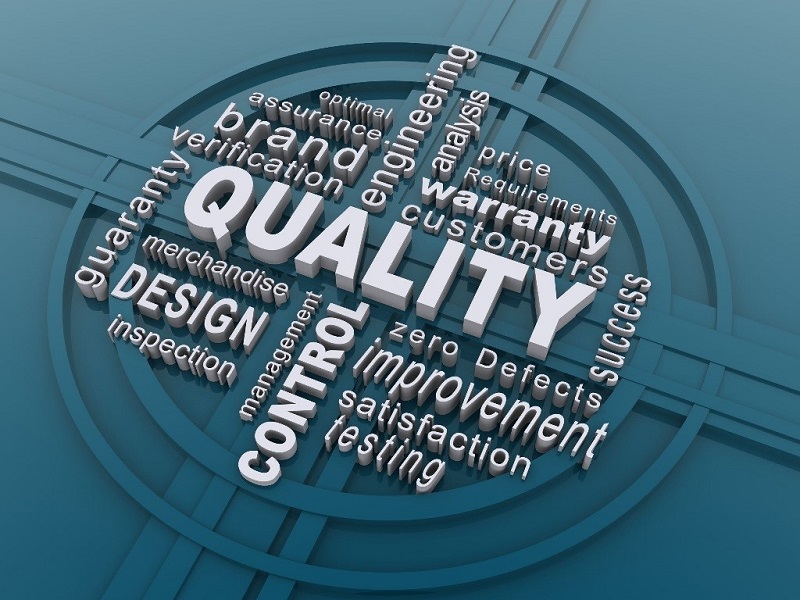 Menu
Menu
© 2024 ООО “Office Times”
Author: Nikolay Elagin
Rubrics: Project management
– How shall we control quality?
– Let’s delegate it to a Project Management company, the professionals will handle it better.
What term is used most of all in course of negotiations between a client and a contractor? That is the term “quality”. The due level of quality is possible to achieve only in the event regular and thorough control is provided at all stages of the project. Who controls and how is that control organized, who can the client trust so as to end up with the results which match the expectations?

– I expected a different open space in techno style
Quality control, as a rule, is a multi-level process. It is performed by different participants of a project at different project stages. I’d like to review each of those stages in more details.
The client signs any acceptance, any document which is made in witness of the fact that exactly what was planned is done and it is done exactly in the way it was planned. The main signatory should be convinced that all stages of the construction have been performed appropriately which means all of them are subject to control.
Therefore, the client needs a specialist or a team of specialists for constant control of technological processes in course of the project. There need to be specialists who, in addition to stating something like “yes, a partition is indeed painted”, will be able to determine whether or not the partition erection technology is fully followed, that the materials are exactly the ones indicated in the statement of work and that the paint is applied in the right manner.

Quality control defines the performance effectiveness
The soundest decision to make is to delegate the quality control to experts – in this specific case – to a project management company. The project management company conducts constant monitoring of what is done and how it is done. The specialists compare the work deliverables with what had been planned and documented. In this case quality control is an instrument which the project management company employees use so as to protect the client’s interests.
The employees of the project management company know how to best handle systematic stage-by-stage control. They are aware of the sequence of technological stages, specifications of the materials, and they can find a decent balance of project participant’s interests. As far as I am concerned, a managing company control is essential over any project. A competent “third party” controls all of the construction particularities. Even if it is only about painting a wall the experts will check the wall joints, the plastering, the surface preparation, the quality of painting and the drying process.
The managing company monitors both the technological processes in general and the quality of each particular operation performance.
In the event a very thorough documented quality control is required, then construction control specialists are engaged. The experts control each stage and fix their observations in documents and respective acceptance certificates. Such experts have all of the required permits and authorities to do the job.
Construction Control encaptures the discreet fitting work deliverables in acceptance certificates, certifies acceptance of each stage of pre-fabricated assembly installations, installation technology, the materials in use on site and other particularities. This range of acceptances and documentation constitutes the entire track record of the construction and fitting process. Such documentation is in essence a quality guarantee on all construction work.
In the event any one of the construction elements needs to be evaluated for quality and due installation, technical experts can be engaged to check up technology, compliance with the rules and regulations and standards.
The facility service company can also take part in quality control. Normally it acts for an on behalf of the owner of the entire building and is focused on making sure that the construction or renovation process is in line with the overall concept of the building.
In order to inspect particular elements or stages of the project a technological expert evaluation can be a solution. The technological control experts perform a detailed review of the applied technologies and come up with a respective written opinion. The technological control can be of use both if applied as a systemic solution or as an approach to control particular stage or constructive element. It is convenient as it allows to formulate a specific enquiry and get a clear-cut response in form of a document. I remember cases when a part of a wall was dismantled and the technological expert evaluation allowed to determine the quality of work including the technologies applied in construction work as well as the materials which had been used including the type of plastering and specifications of the paint used in finishing.
Just like the client, the contractor is a significant participant of the project, who executes all of the project-related documents. The contractor is directly responsible for due performance of work throughout the process and therefore it arranges its own quality control functions.
Performance of the quality control functions by the contractor and the client, who execute all of the essential paperwork on the project, is an absolute must. The rest of the “controlling group” can vary. For instance, the property management company and technical experts or the property management company and the facility management company.
It is the pre-feasibility study or project planning stage when decisions are made in terms of how exactly the quality control will be performed and who will be appointed to perform such quality control functions.
The specific listing of the “controlling group” depends on the scope of current assignments and the state of the project.

There are different levels of quality control
A client, being the first interested party, can independently perform the quality control. However, there is a risk to get completely confused in an awful lot of construction peculiarities. Those peculiarities could and actually should be handled by someone with sufficient practical experience who could deserve to be deemed client’s trusted consultant.
As project managers we take over the entire set of quality control challenges to free our client from any difficulties which may be associated with this aspect of the project. Our specialists perform continuous construction process monitoring which helps the client avoid such daily routine. We can keep the client posted on all processes and the project progress however we prefer not to disturb the client without significant necessity. We are competent enough to resolve issues immediately without too much unnecessary movements.
Our client is convinced that every assignment on the project is duly controlled and that its interests are protected even in finer details. If a bathroom partition is made of gypsum wall panels we make sure that it is specifically the water-proof type of material. If doors are being installed, we make sure that the door leaves are mounted after the main painting work is completed.
The client’s benefit from our participation in the project is reflected in the fact that we help the client free its resources from the necessity to involve into the project assignments, the fact that we protect the client’s interests and that we make sure that all technological processes are performed in compliance with the project statement of work.

The client can rest assured – the project management company provide due balance of interests among all project participants
We always apply quality control instruments approved by the project participants to avoid subjective judgements and assure mutual understanding.
The Office Times specialists have a wealth of practical experience which enables them to provide qualified and multifaceted support in project quality control. We can arrange both construction control and technological expert control in projects. Our main objective is to protect the client's interests and implementation of all expectations in reality.